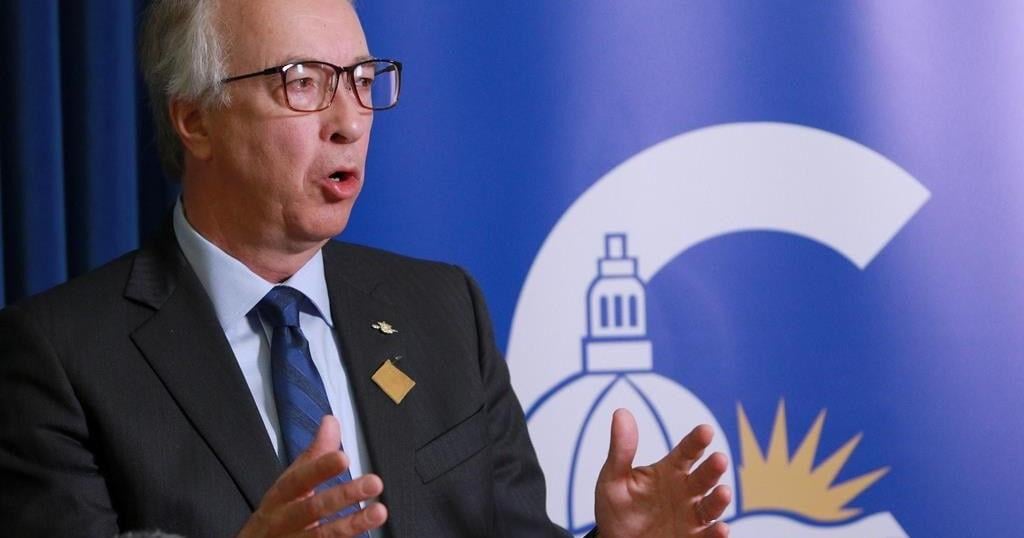VANCOUVER – The leader of the Conservative Party of British Columbia says as premier his government would pay to send people outside the province for health care and expand private clinics in an effort to fix a system “in crisis.”
John Rustad acknowledges that if his party were to form government in October the plan would cause the provincial budget to “spike,” but says in the long-term it will bring down per-capita health-care spending.
Rustad’s promises, three months before the provincial election, also include compensating health workers who lost their jobs for refusing to get the COVID-19 vaccine.
The health-care plan is the first major platform piece for the party and has the governing New Democrats accusing Rustad of planning big health cuts, while the Opposition BC United claims he stole their ideas.
Rustad says expanding publicly funded partnerships with non-governmental clinics for specific procedures and diagnostic services will get people off wait-lists and that similar models in Europe prove it can be done “seamlessly.”
He could not provide numbers for how much he expects the health-care overhaul would cost.
“My anticipation is that we will see an initial spike up in spending as the model comes in place, but then that will level off to a place where we’ll see the cost per capita dropped over time,” he said.
“I don’t have the precise numbers,” he said. “There are a lot of complexities that have to be put in place as we do the transition.”
Documents released by the B.C. Conservatives to accompany the plan highlight a report by Deloitte that projects Canadian health spending as a per cent of GDP will grow to 13.9 per cent by 2040 and suggest “modernization” can bring that down to under 11 per cent.
The report includes calls for more virtual care and improved data collection.
New Democrat member of the legislature Ravi Parmar told reporters after Rustad’s announcement the reduction would mean a loss of $4.1 billion in health spending.
“At a time when we should be investing more in health care in British Columbia, John Rustad and the Conservatives are proposing taking money away from our health-care system,” he said.
A statement from BC United says it was the first party to propose to publicly fund treatments at existing private clinics to immediately clear waiting lists and hire back health care workers who were fired due to the vaccine mandate.
“The Rustad Party copying our health care platform, which was created with the input of our strong team of physicians running for BC United in the upcoming election, simply shows that BC United is leading the charge to fix the NDP’s health care crisis,” the statement says.
Rustad says a new “wait-time guarantee” for certain procedures would mean that if patients can’t been seen on time they would be sent for care outside the province.
He says his government would do away with the COVID-19 vaccine requirement for health-care workers and a committee would decided how the “thousands” of people who were fired would be compensated.
A 2024 B.C. Supreme Court decision upholding the province’s vaccine rules says approximately 1,800 health-care workers lost their jobs due to being unvaccinated contrary to these mandates.
This report by The Canadian Press was first published July 18, 2024
